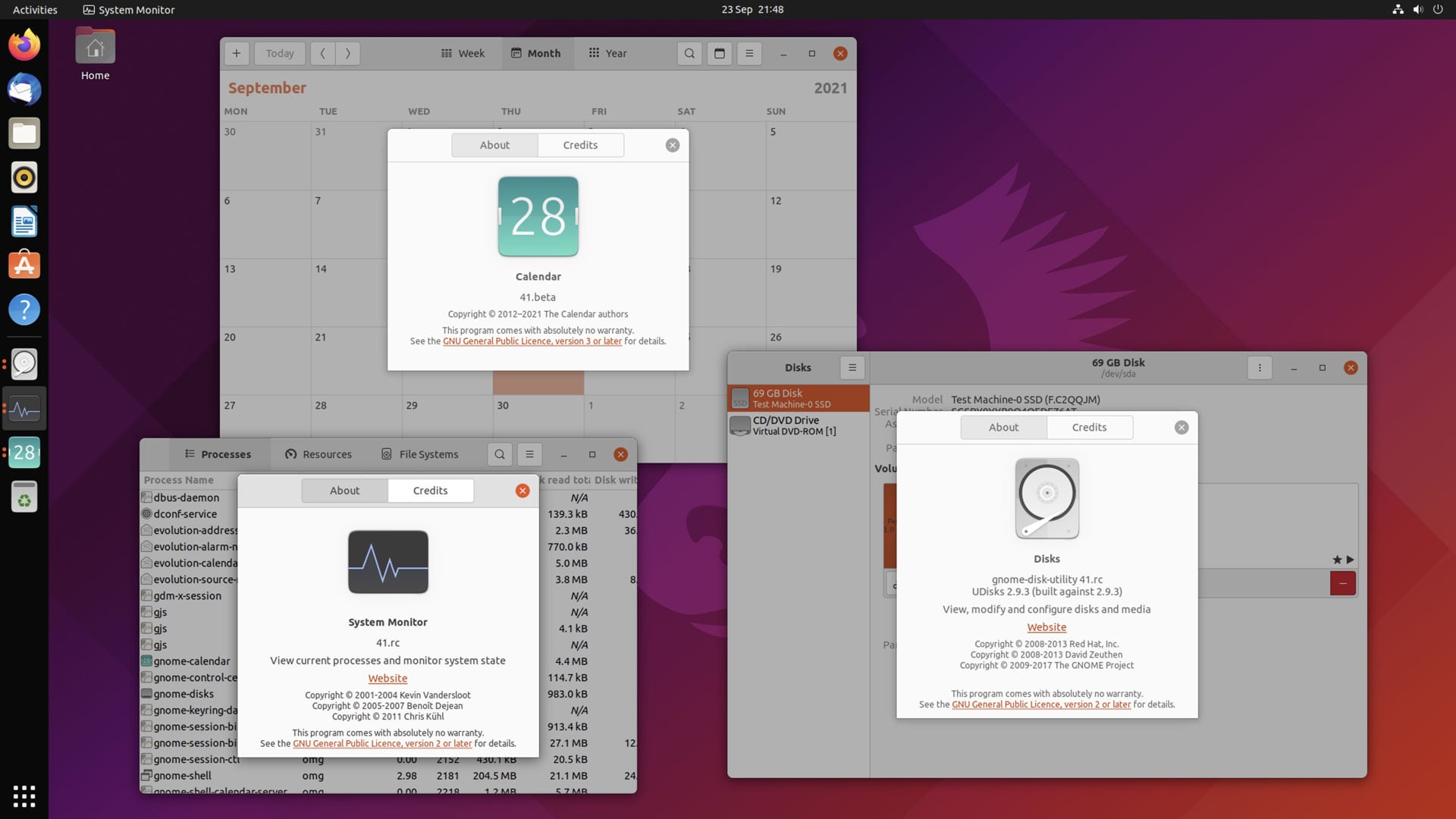

The last interim release until Ubuntu 22.04 arrives brings a brighter default look, an updated tool chain, a new Linux kernel version, as well as some important under the hood changes
What’s new in Ubuntu 21.10 (Impish Indri):
- 14 October 2021: Today, Canonical released Ubuntu 21.10 – the most productive environment for cloud-native developers and AI/ML innovators across the desktop, devices and cloud.
- “As open source becomes the new default, we aim to bring Ubuntu to all the corners of the enterprise and all the places developers want to innovate,” said Mark Shuttleworth. “From the biggest public clouds to the tiniest devices, from DGX servers to Windows WSL workstations, open source is the springboard for new ideas and Ubuntu makes that springboard safe, secure and consistent.”
- Made for Ubuntu developers wherever they are:
The autumn of 2021 is clearly marked by Microsoft’s big release of Windows 11. Be that as it may, Ubuntu fans also have some reason to celebrate with the launch of Ubuntu 21.10 Impish Indri.
General facts about the mischievous lemur
The last time Ubuntu had a version with a codename starting with “I” was nearly 13 years ago when Ubuntu 8.10 Intrepid Ibex was launched.
Released on October 14, 2021, 21.10 Impish Indri is a short-term, interim, release and it features support for only 9 months until the end of July 2022. Ubuntu’s 25th release since 2004 is an important one as it brings tons of under-the-hood changes, major new app releases, critical security patches, and bug fixes, as well as some desktop changes.
GNOME 40 – probably the biggest change
For what it is, a simple interim release, 21.10 is somewhat more impressive than other releases of old. Probably the biggest change it brings is the GNOME 40 as the default desktop experience.
At the time of this writing, GNOME 41 is the latest version, but it came out a bit late for Ubuntu 21.10. Nevertheless, version 40 moves things along by providing some curious juxtapositions of desktop components.
The introduction of the new horizontal workspace switcher and revamped app launcher add a bit of style to the new Ubuntu without compromising its familiarity.
GNOME also brings new multitouch gestures (a welcome change for laptop users), a persistent trash can icon (it now resides in the dock and not on the desktop), and the dock now benefits from separator bar between pinned and running apps.
Other small changes include some reworked thumbnails of the workspaces, and some tweaked activities views. Last but not least, the default theme in Impish is the Yaru Light.
New Installer
Another interesting change that 21.10 brings is the refreshed installation procedure. The new installer is made with Flutter, Google’s cross-platform development kit and the changes are quite good. The installer definitely looks more modern, even though it “behaves” pretty much like the old one (which is no bad thing).
Not only that but 21.10 is said to be the fastest installing interim release of late, at least on paper.
Other small changes
Another great change is the addition of kernel 5.13, one of the most significant and important kernel versions (with over 16.000 code commits since it came out). The usage of kernel 5.13 translates into new features, better drivers, and improved hardware support.
Some highlights include Apple’s M1 processor, Magic Mouse 2, Lenovo’s Thinkpad X1 Tablet Thin Keyboard, Amazon’s Luna game controller, AMD Radeon’s Aldebaran GPUs, and FreeSync HDMI support for AMD GPUs, just to name a few.
Verdict
Impish Indri is a big deal for users who want to sample all the latest changes of the Ubuntu universe, a.k.a. non-LTS devotees.
21.10 brings forth various interesting changes and a multitude of under-the-hood fixes and tweaks. Is the upgrade worth it? This interim release is in a tough spot, especially since it is the last one before the big LTS release (which will be 22.04).
However, if you think that all the kernel changes and extra hardware support will benefit you and your use case, then an upgrade may very well be worth it. After all, nine months is not exactly a long time, but it’s not a short period either.
